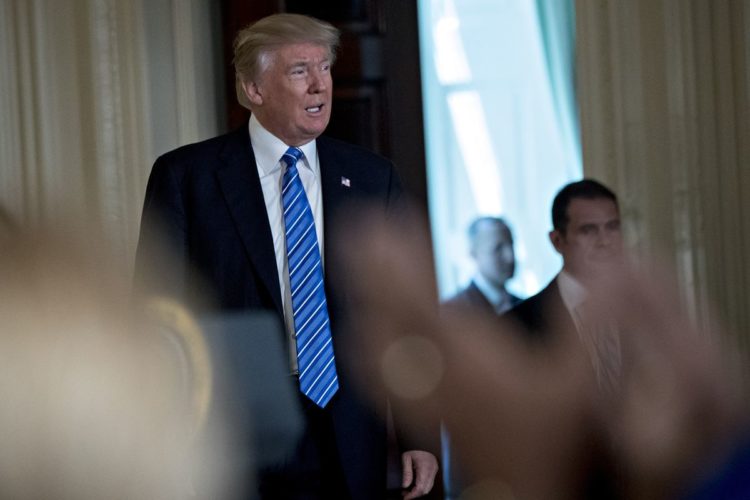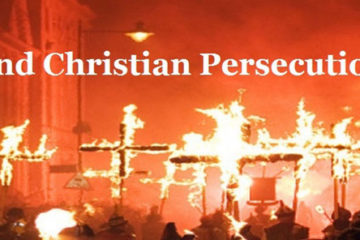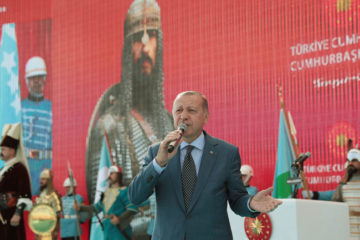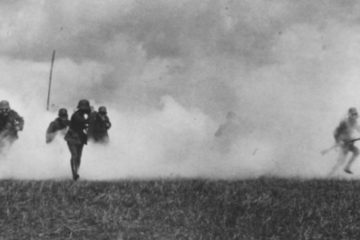New Trump Ban Restricts or Bans Travel From Eight Countries

(Bloomberg) —President Donald Trump ordered restrictions or suspensions on travel to the U.S. from eight countries, replacing his ban on travelers from six Muslim-majority nations that had been limited by court challenges.
“I must act to protect the security and interests of the United States and its people,” Trump wrote in Sunday’s proclamation, which came as his earlier travel ban was set to expire.
Speaking to reporters earlier, Trump said “the tougher, the better,” on the restrictions. During his presidential campaign, Trump spoke often of “extreme vetting” of those wanting to enter the U.S., and on Sunday he tweeted, “We will not admit those into our country we cannot safely vet.”
The new restrictions impact travel to varying degrees from Iran, Libya, Syria, Yemen and Somalia, all of which were on the original list. The U.S. will also now restrict or ban travel from Venezuela, North Korea, and Chad.
The measures will take effect Oct. 18, a grace period that may prevent the kind of mass confusion seen at airports in the U.S. and abroad after the initial iteration of the travel ban took effect immediately.
“The State Department will coordinate with other federal agencies to implement these measures in an orderly manner,” Secretary of State Rex Tillerson said in a statement.
The previous travel ban was scheduled to expire on Sunday after the Supreme Court’s ruling in June, which tailored the ban to only include those who have no “bona fide relationship” to the U.S.
DHS Study
Acting Homeland Security Secretary Elaine Duke sent Trump recommendations for entry restrictions and additional visa requirements tailored to shortcomings in the information each country shares with the U.S. and an assessment of the risk of terrorist infiltration the nation poses, administration officials told reporters on Friday.
The DHS study was “the first such review of its kind in United States history,” Trump said in the proclamation.
In the order, Trump said the Secretary of Homeland Security assessed that Iraq also didn’t meet requirements for identity-management protocols and other risk-mitigating factors — but that entry restrictions weren’t warranted given the country’s ties to the U.S. and efforts to combat terrorists.
Trump’s previous efforts to restrict travel to the U.S. prompted court challenges, mass protests and criticism from corporate leaders.
He rescinded his first travel ban after it was halted by a judge and replaced it with a new executive order on March 6, which was challenged at the Supreme Court. That order was set for an Oct. 10 argument at the Supreme Court. It’s unclear how the new restrictions issued by Trump will impact that case, which also covers a separate provision of the order that suspends refugee admissions until Oct. 24.
Justice Department spokeswoman Sarah Flores said last week that government lawyers would continue to “vigorously defend” the travel restrictions, but she wouldn’t comment on how the new policy might affect the Supreme Court case.
Tensions Inflamed?
The travel restrictions could further inflame geopolitical tensions around the world as Trump is engaged in heated rhetoric against the governments of Iran, North Korea and Venezuela.
The U.S. notified all countries in July of “baseline” standards they would need to meet to avoid travel restrictions, said Miles Taylor, a counselor to Duke at DHS. Several countries didn’t respond to the U.S. requests for more information, he said.
“Some countries didn’t even have the courtesy to say ‘fly a kite’,” Taylor said. “We’re talking about countries that were willfully non-compliant and refused to engage with the United States.”
Trump suggested this month, after the latest terror attack in London, that the current restrictions on travel to the U.S. don’t go far enough.
“The travel ban into the United States should be far larger, tougher and more specific,” Trump tweeted Sept. 15, hours after a homemade bomb on a city subway injured dozens. “But stupidly, that would not be politically correct!”







No Comment